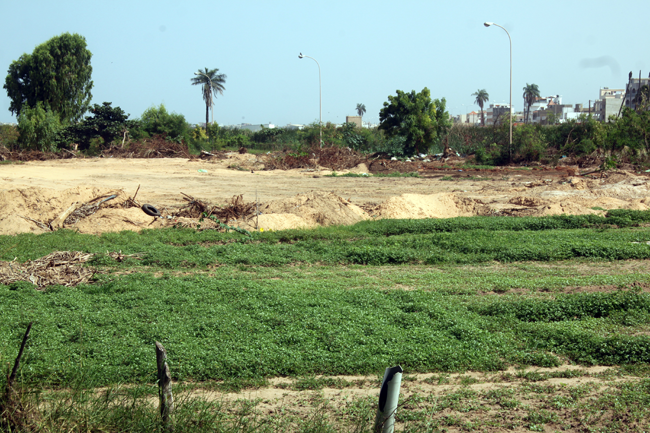Dakar will soon be a region without agricultural activities, if the water access issue for market gardeners is not resolved. This is the warning issued by the Pan African Institute for Citizenship, Consumers and Development (CICODEV), which presented the results of a study on Tuesday concerning the policy for productive water in the region of Niayes. “If the government does not address this water problem, the department of Rufisque and the Dakar region may be wiped off the agricultural map of Senegal in the near future,” said the document, which dwelt on the feelings of market gardeners who were interviewed as part of the study.
Indeed, 90% of the family farm owners interviewed admitted that the lack of water is their main concern. The gradual decline in the water distribution system, the lack of access, for most of them, to the new dedicated boreholes, the high cost of connecting to Sen’Eau, and the discontinuity in the supply of water are, among other things, the concerns raised by the market gardeners. “The strong threats related to access to water make us fear a gradual disappearance of these family farms,” argued the report, indicating that the department of Rufisque should be reinforced further in order to remain the main source of supply of fruit, vegetables and poultry in the region. “The threats that market gardeners face in accessing water are multiple and some are beginning to be felt. Market gardeners are abandoning the trade and selling their land, vegetables and fruit are becoming scarce and prices are rising,” said the study, which was conducted on a sample of market gardeners in the Niayes area, particularly in Rufisque, which covers two-thirds of the area of the region and is the main focus of activity.
The study showed that water consumption in the department of Rufisque has increased by 17% due to rapid urbanization, to the detriment of family farms. “As long as the population increases, so will the growth in food demand. Similarly, the attractiveness of this area and the development of socio-economic activities contribute to the exponential increase in water needs,” said the study. “It is necessary to give water for household use, to give water to animals, but it is also necessary to give water to family farms to produce the fruits and vegetables that we consume,” said Amadou Kanouté, Executive Director of CICODEV. Several entities involved in this access to productive water issue, including Sen’Eau, took part in the restitution of the study at the town hall of Rufisque.
The first vice-president of the Departmental Council of Rufisque, Prof. Gorgui Ciss, was pleased with the study, which identifies prospects for the sustainability of water resources to enable the department to pursue its agricultural vocation. Reviewing the management of dedicated boreholes (Beer Thialane and Thiaroye), developing systems for transferring fresh water from favorable areas, supporting farmers in their partnership with financial institutions for the installation of appropriate water works, creating secure agricultural areas reserved exclusively for agriculture are the tracks outlined by the study to resolve the issue. The country has renewable water resources, estimated at 4,750 m3 per capita per year, according to the study, a ratio well above the reference value of water shortage estimated at 1,000 m3 per capita per year.
Par Alioune Badara NDIAYE – Correspondant – abndiaye@lequotidien.sn

